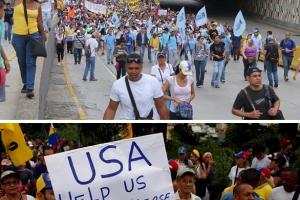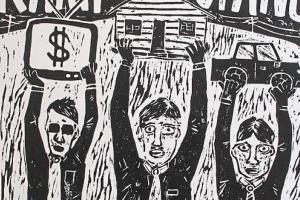U.S. Military Should Get Out of the Middle East
The Boston Globe
 It's time to end US military engagements in the Middle East. Drones, special operations, CIA arms supplies, military advisers, aerial bombings - the whole nine yards. Over and done with. That might seem impossible in the face of ISIS, terrorism, Iranian ballistic missiles, and other US security interests, but a military withdrawal from the Middle East is by far the safest path for the United States and the region. That approach has instructive historical precedents.
It's time to end US military engagements in the Middle East. Drones, special operations, CIA arms supplies, military advisers, aerial bombings - the whole nine yards. Over and done with. That might seem impossible in the face of ISIS, terrorism, Iranian ballistic missiles, and other US security interests, but a military withdrawal from the Middle East is by far the safest path for the United States and the region. That approach has instructive historical precedents.










Spread the word